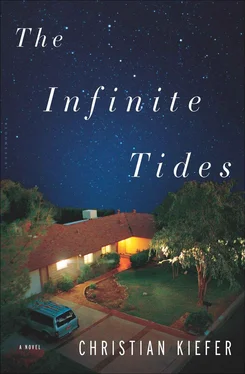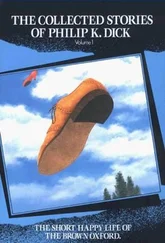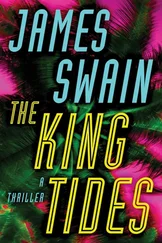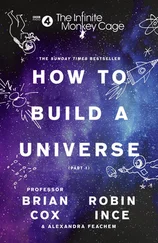When at last he opened his eyes into the empty room, the sense of drifting, of being back in the microgravity orbit, disappeared all at once, replaced with a sense that he had just tumbled back into his own body once again, the delirium of his pain rising to a sharp jagged point. He was sitting up now, although he had no recollection of doing so, his heart hammering in his chest and the jumbled collection of metal and glass tumbling in the dry socket of his skull. He knew he was going to vomit and managed to stumble across the room, the zigzags of his vision overlaying everything in his path, and crashed to the floor of the bathroom and heaved the contents of his stomach into the toilet in a weak stream like water from a burbling garden hose. His stomach turned again and again until he was coughing and choking on emptiness, a thin stream of drool extending from his mouth to the swirling waters of the bowl.
Then he stumbled back to the mattress, the shape of his body outlined in the pool of sweat he had left behind, and tumbled to its surface, trembling for a long, quiet moment before falling, at last, into sleep.
The stars as impossible and quixotic as they had ever been. For three days he felt as if his mind had become an empty box containing nothing but his fatigue and the day that followed was slow and quiet as he staggered through the exhaustion of his recovery. Then another night. He had come to expect the recovery period, the two or sometimes three days of weakness afterwards, but his weakness had stretched into five days now, continuing to feel as if he had just returned to Earth’s gravity, the specific and precise and quantifiable density of his body as it dragged from the kitchen to the bedroom, from downstairs to upstairs. He wished to god that he had a television so he could at least watch the mindless moving images of cooking shows and nature documentaries but alas there was no god who would deliver a television to him, regardless of his weakness or his pain.
During these slow days he found himself thinking often of Quinn and now, sprawling upon the sofa under those dark and meaningless and cruel stars, he continued to think of her. NASA had sent a camera crew to the funeral and the DVD of that footage had been in his mailbox when he arrived in Houston and he had watched it even though he did not want to do so. Barb and her mother and a group of anonymous figures Keith did not know or did not remember ever meeting all in a row as if croaked down from the boughs of huge and leafless trees. A priest or pastor he did not know talking endlessly about things that did not matter. No one he knew or cared about. A woman who had betrayed him. A polished box holding the crushed body of his daughter. A poem he could not understand read by someone he had never seen. Then that same box being lowered into the ground. Christ. Why would any father want to see such a thing? And yet he had watched it, mostly because Dr. Hoffmann had insisted it would be good for him to do so. Even now he did not know how any funeral could be good for anyone and yet the memory of it returned to him in his quiet exhausted solitude, not the memory of watching the recorded images but rather the memory of the funeral itself as if images recorded by the camera were the sight of his own eyes, as if he had felt the faint cool breeze as it filtered through the pale green leaves, as if he himself had cast the first shovelful of dirt down onto the box that cradled his daughter into the earth. My god. Tell me about your cheerleading competitions now and I promise I will listen like no other father has ever listened to a daughter. Not now nor ever to be. All promises falling to the bleak law of gravity, like a skein of gray smoke pulling backwards into the fire from which it came.
He sat there for an hour, alone on the sofa, and by the time Peter appeared he had downed two beers in quick succession and was sipping the third. He said very little as Peter set up the telescope and focused on various stars, the blur of a galaxy, a sliver of moon, the smeared color of a nebula, and when Peter told him to look he rose from the sofa to do so, not because he was particularly interested but because he did not know what else to do. He had been waiting for Peter to arrive and now he had and Keith did not know what he had been waiting for.
“Here is something beautiful to see. Come and look,” Peter said and he did so once and again and then a third time, each time looking at — what exactly? — a smudge, a star that looked like a star and hence was little different from what he could see when looking straight up into the night sky from his position on the surface of Earth, a scant blaze of color.
The fourth time he refused to rise: “Thanks, but I don’t want to see anything else,” he said. “Not tonight. Just let me sit here.”
“You are frustrated,” Peter said. “I know. It will make you feel better, maybe, to look.”
“No more.”
“Yes, no more.” Peter leaned to the telescope and turned it on its tripod and then looked through the lens and then with his bare eye and then to the lens again, adjusting and readjusting. He looked and moved, looked and moved again. Occasionally he would say something to himself or to the telescope or to the stars themselves: “Oh” or “There you are” or “Beautiful” or “Where are you?”
After a time Peter too had seen enough and he sat back on the sofa and pulled a small black bag from the larger bookbag at his feet and unzipped it and removed his small glass pipe and a Ziploc and filled the bowl of the pipe and then clicked his lighter into flame and applied it to the bowl. The red glow rose and fell in light as he inhaled. Then the long, slow exhale. He leaned back against the sofa.
“This is Cassiopeia,” he said. “This W shape there. See?”
“You just don’t know when to quit,” Keith said.
“Yes, true,” Peter said. “My apologies.”
For a moment, Keith did not respond. Then he said, “OK, fine. Where’s the W ?”
Peter’s finger in the darkness. “Just above houses there,” he said, tracing a shape in the air directly in front of them, as if that shape was hovering close enough to touch in the night.
“It’s all stars.”
“Look for this. Like a wide W , stretched out some. You see? Just above houses. Almost on top of them.”
A blur of stars everywhere and then yes he saw it: a jagged W as if scrawled by a child, the bottom points of which were nearly resting on the distant rooftops. “Shit,” he said, nodding. “I see it.” He sipped at his beer.
“Yes, good then,” Peter said. “That is called Cassiopeia.”
“I think I remember that from Boy Scouts.”
“Good. If you know nothing else about sky, you know that at least.”
“Cassiopeia the W ,” Keith said. Then he added: “Shit.”
“Yes,” Peter said. “Shit.” A pause. Then: “You know Big Dipper?”
“Yes.”
“Show me.”
“I’m tired out, Peter.”
“Come now,” Peter said. “Show me. If you know what it looks like, find it. Show to me this.”
He sipped his beer, his eyes casting around the sky, the pinpoints of ever-twinkling stars like a veil. Where? He breathed out with a loud hiss and then rotated his head slowly, tracking from one side of the sky to the other, then again mumbling, “Shit,” and leaning back and there it was: the Big Dipper, tilted up on one end with the Little Dipper pouring into it. “There,” he said.
“Yes, good. Pretty high up right now.”
“I guess so.”
“Yes, because all your life you have seen Big Dipper and you know where to look. Yes?”
“I don’t know.”
“Yes,” Peter said. “You do know. You know more than you think.” Keith silent now.
Читать дальше












